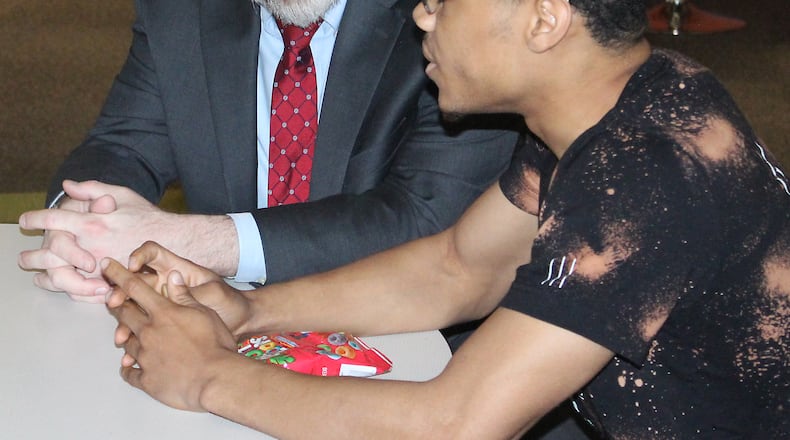And as a huge advocate of “continuous improvement” work, he wants schools to try new things.
“The best schools I know do that on a very regular basis,” DeMaria said. “They’re willing to acknowledge, you know what, this is lousy, this isn’t working, we need to do something different.”
DeMaria said schools — with the state’s help — need to study research and find other schools that have tackled whatever problem they’re facing, and then take the risks of actually trying new things, accepting that the first try probably won’t be perfect.
“So much of the systems we put into place actually suppress that kind of innovation and that kind of risk taking in the interest of unlocking what works,” DeMaria said. “I think the state could play a role and can leverage the (county educational service centers) and other partners. … I’ve laid some groundwork over the last couple of years, but it’s like midway there.”
DeMaria comes across as a friendly academic — bright and a deep thinker. The invitation to his upcoming farewell party is a play on television’s Mr. Rogers, complete with cardigan sweater reference.
But DeMaria could only be Fred Rogers if someone put a fast-forward button on the TV icon. The former state budget director thinks fast and talks fast, and has been described by ODE staff as having “an incredible capacity for work.”
Strategic plan
A key part of that work in the past five years was creation and implementation of the state strategic plan for schools. DeMaria said he wanted the Ohio Department of Education to chart its own course rather than being so reactive.
ODE held meetings around the state to get input and eventually settled on a plan to educate “the whole child,” with things like leadership, creativity and relationship skills placed on equal footing with the more traditional math, reading and science.
But the plan was not just a “vision and values” exercise. It included 10 strategies designed to move Ohio’s education system forward — from producing more effective teachers and giving them better training, to improving early childhood education and revamping approaches to student testing.
“Every one of those 10 strategies had something happening in our organization to continue to drive it (forward),” DeMaria said. “It helped us as an organization, to pivot from mostly being a compliance organization, to one that was really providing support (to schools).”
Goals for the future
DeMaria said there are a ton of areas where ODE can continue to make progress. They include project-based classrooms, refining recent online teaching experiences, plus supporting districts’ implementation efforts in school-based healthcare and social-emotional learning.
He said one ongoing ODE project is studying how to offer rigorous high school math in different forms — statistics and discrete mathematics and other options tied to job fields — rather than funneling most students through traditional courses.
DeMaria said his 30 years of government service in his adopted state of Ohio have been a privilege. He name-dropped almost a dozen people as “great bosses” he’s worked for, from Greg Browning and Eric Fingerhut to multiple governors.
As far as his own future, he doesn’t have a “next job” locked down.
“I don’t have my next thing, but there will be a next thing,” he said. “I always tell people, the word ‘work’ has such a drudgery attached to it, but for me, there’s a joy. … Sometime in the next 3-4 months, you’ll learn, hey, Paolo’s doing this thing. And not only is he going to have joy doing it, he’s also going to work hard at it, because he’s going to love what he’s doing.”
About the Author

